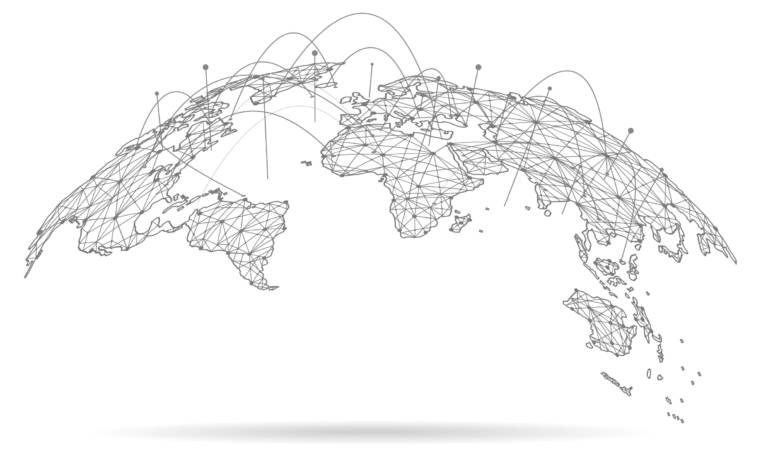A Thorough Overview of Letters Rogatory and Their Legal Implications
A Thorough Overview of Letters Rogatory and Their Legal Implications
Blog Article
Letters Rogatory Explained: Facilitating Legal Participation In Between Countries

Definition of Letters Rogatory
Letters rogatory are official demands made by a court in one jurisdiction to a court in one more territory, seeking help in getting evidence or statement for a legal action. This procedural mechanism is crucial in the context of worldwide regulation, where lawful systems may differ, and cross-border participation is required. Letters rogatory assist in the celebration of information that may be vital for adjudicating cases, particularly in instances entailing intricate transnational problems.
Normally, these demands arise in civil, criminal, or administrative matters where a celebration calls for proof that is situated outside the territory of the requesting court. The letters act as a way to ensure that the principles of due procedure are maintained, allowing courts to accessibility proof that might otherwise remain unattainable because of geographical or lawful obstacles.
Using letters rogatory is controlled by global treaties, reciprocal agreements, or domestic legislations, which define the procedures and responsibilities of the courts included. It is necessary to note that the execution of such requests is not guaranteed; they rely on the regulations and techniques of the territory getting the letter. Therefore, letters rogatory are a critical tool for fostering lawful participation and making certain justice throughout borders.
The Process of Issuing Letters Rogatory
Issuing letters rogatory involves an organized procedure that makes sure compliance with both domestic and global legal criteria. At first, the requesting party, typically a court or lawful authority, prepares a formal demand outlining the nature of the assistance looked for, the proof or info needed, and the lawful basis for the request. This paper has to be exact to promote understanding by the foreign jurisdiction.

The next step involves sending the letters rogatory to the marked international authority. This is usually done via polite networks or worldwide legal assistance frameworks, ensuring that the demand is received and acknowledged by the foreign court. The international court after that processes the request according to its very own lawful procedures, ultimately replying to the asking for celebration with the in-demand information or evidence, hence assisting in worldwide legal participation.
Relevance in International Legislation
The importance of letters rogatory in international regulation can not be overstated, as they serve as a crucial device for judicial teamwork across boundaries. These formal ask for help in legal issues enable courts in one jurisdiction to look for information, proof, or the presence of witnesses from an additional territory, thus promoting the management of justice in transnational cases.
Letters rogatory are particularly important in the context of globalization, where legal conflicts often span several nations. They allow the collection of proof that could otherwise be unattainable, guaranteeing that lawful process are notified and reasonable. By fostering partnership in between judicial systems, letters rogatory aid promote the regulation of legislation and advertise common regard among countries.
Furthermore, the use of letters rogatory shows a commitment to global norms and principles of participation, reflecting the interconnected nature of modern legal methods. It highlights the relevance of adhering to well established procedures and treaties, such as the Hague Convention, which offers a structure for these demands - Letters rogatory. Ultimately, letters rogatory improve the effectiveness of lawful processes, ensuring that justice is not impeded by geographical borders
Challenges and Limitations
Regardless of their official site value, letters rogatory face several challenges and restrictions that can restrain their performance. One primary issue is the varying lawful structures and procedures throughout territories, which can lead to misconceptions and delays in the execution of demands. Various nations might have unique needs for the credibility of letters rogatory, complicating the procedure additionally.
Furthermore, the commonly drawn-out nature of international legal participation can prevent prompt accessibility to proof or witnesses. This hold-up may negatively impact legal procedures or ongoing examinations, particularly in instances needing urgent activity. The lack of resources and training in some territories can result in inadequate handling of requests, leading to inadequate or insufficient feedbacks.
Social content distinctions and varying mindsets towards legal processes can also position significant barriers. For instance, countries with less official lawful systems may have a hard time to abide by the procedural rigor expected in letters rogatory. Last but not least, political tensions in between nations can influence the determination to implement demands, leading to an absence of collaboration and diminishing the utility of this system in international law. These obstacles require continuous dialogue and reform to boost the efficacy of letters rogatory in lawful participation.
Study and Examples

Alternatively, difficulties can emerge, as seen in a situation entailing a European country looking for proof in a recurring criminal issue from a non-EU nation - Letters rogatory. The process was delayed because of administrative difficulties and varying legal standards, inevitably preventing the examination
These examples illustrate that while letters rogatory can promote global participation and accelerate legal procedures, they likewise highlight the requirement for clear interaction and understanding of legal frameworks in between nations. Such study emphasize the importance of refining this tool to enhance performance and effectiveness in worldwide legal matters.
Final Thought
In recap, letters rogatory serve as an important device for assisting in lawful collaboration between nations, making sure the collection of proof and statement throughout territories. Their importance in global law can not be overstated, as they advertise due procedure and improve the effectiveness of cross-border lawful proceedings.
Letters rogatory are formal requests made by a court in one jurisdiction to a court in an additional jurisdiction, seeking support in acquiring evidence or testament for a legal proceeding. The asking for party, typically a court or lawful authority, drafts a formal demand describing the nature of the assistance sought, the evidence or info needed, and the lawful basis for the demand. The foreign court then refines the demand according to its very own legal procedures, inevitably responding to the asking for party with the popular details or evidence, thus promoting worldwide lawful teamwork.
Moreover, the use of letters rogatory shows a commitment to international standards and concepts of cooperation, mirroring the interconnected nature of contemporary legal practices.International lawful participation through letters rogatory is not without its real-world ramifications, as shown by numerous case research studies that highlight both challenges and successes.
Report this page